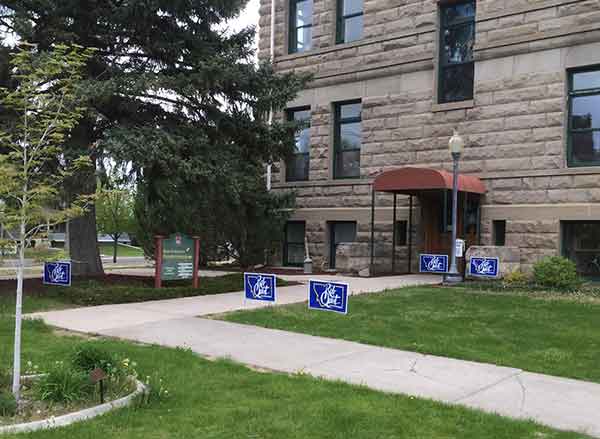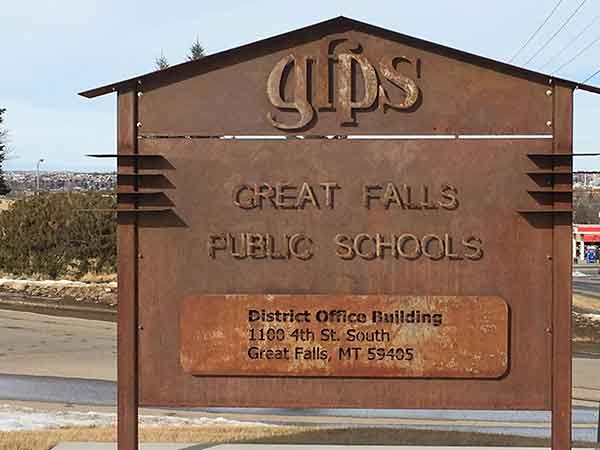Two weeks from today, Montana voters will choose a new Congressional representative. From the looks of things here in River City, our local school district — that’s right, Great Falls Public Schools — is putting its fingers on the scale for Democrat Rob Quist. In clear violations of the law, someone has placed Quist’s campaign…
Author: ECB Staff
City Staff Deserves Credit For Sorting Out CDBG Mess
As more details emerge about conflicts of interest surrounding the City and CDBG funds, the more it has become increasingly clear that staff, and City Attorney Sara Sexe in particular, have done an admirable job of sorting out a messy situation. As Gregg Smith noted, Paris Gibson Square, as an organization, has every right to raise questions about an alleged conflict on the CDC in…
On Breitbart: Quist Urges Climate Change Deniers To Kill Themselves
Montana’s special election to replace Ryan Zinke has made national headlines, including this amusing piece from Breitbart yesterday. Enjoy the juxtaposition; on one hand, the analytical, nuts-and-bolts Greg Gianforte, and on the other, well, Rob Quist: The Republican nominee answered a question about climate change and the Clean Power Plan saying, “Everyone believes that the climate is changing.”…
Changing Of The Guard
We know you haven’t heard from us in some time. Some of you wondered (hoped?) if we were simply going to go away. The truth is, we have been in transition. Effective today, founding Editor Kelly Parks has resigned, and Phil Faccenda will be taking her place. “Kelly deserves tremendous credit for getting this project off…
Responding To An Angry Reader
On a Facebook post sharing Phil Faccenda’s excellent piece from yesterday, Angry Reader Dennis Granlie really let us have it. He writes, “You really need to change the name of this blog to “Sore Losers’ Page.” You simply must accept that Rick lost the election and stop trying to litigate it time and time again! When…
Nativism Alive And Well On The Great Falls City Commission
Great Falls City Commissioner Tracy Houck, a partisan Democrat from Pennyslvania, wrote an amusing letter-to-the-editor, slamming Republican Greg Gianforte for allegedly not representing “Montanan” values. Supporting Rob Quist, Houck writes in today’s Tribune: We have seen him understand our values, our needs and our experiences and turn them into song. While one’s ability to fashion values into…
Way To Go, GFPS
Say what you will about the School Trustees, but a majority of them seem to be very tuned in to public sentiment. Last night, the School Board rejected a $1.2 million elementary levy by a 4-2 vote, with only Bob Moretti and big government liberal Don Ryan dissenting. Ryan is currently up for re-election. As the tide seemed to…
Anonymous Packet Hits The Westside, Rips GFPS
A number of Westside residents received a surprise in their mailboxes this week, in the form of the following 12-page packet. In it, the author takes issue with Tammy Lacey and GFPS for the School District’s construction plans at the Little Russell School site. The District’s operations facility does not conform with county zoning requirements. One…
BREAKING: GFPS Budget Committee Recommends $1.2 Million Elementary Levy, $1 Million Tech Levy
At the GFPS budget meeting (which is still underway), the budget committee recommended a $1.2 million levy for elementary schools, as well as a $1 million technology levy. That’s two levies, for $2.2 million, proposed not even six months after voters approved a nearly $100 million school bond. The full Board of Trustees will vote on whether or not…
Benefis FNP: Patient Care Should Trump Union Constraints
On March 9, the Tribune reported that a majority of Benefis RNs signed interest cards to vote on whether or not to form a union. Since then, opposition to unionizing has grown. Julia Fitzpatrick, FNP, has a good letter-to-the-editor in the Tribune today. It comes after a recent KRTV story detailing her efforts to prevent Benefis nurses from unionizing. Fitzpatrick has organized…











